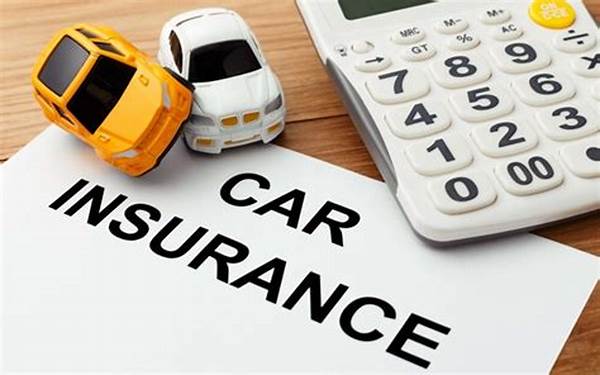When it comes to purchasing car insurance, making the right decision can be a bit overwhelming. With numerous options, coverage types, and terms to consider, it’s easy to fall into the trap of making mistakes that could cost you later. Whether you’re a first-time buyer or looking to switch providers, understanding common errors can help you avoid unnecessary financial stress and ensure you’re adequately protected. In this article, we’ll explore the most common car insurance mistakes people make and provide tips on how to avoid them, so you can make a more informed decision and find a policy that fits your needs and budget.
1. Not Comparing Car Insurance Quotes
One of the biggest mistakes people make when purchasing car insurance is failing to shop around and compare quotes from multiple providers. Many drivers simply accept the first offer they receive or stick with their current insurer without exploring other options. However, insurance rates can vary significantly between companies, and the cheapest policy isn’t always the best choice.
Tip: Always get at least three quotes from different providers to ensure you’re getting the best deal. Make sure you’re comparing similar coverage types to get an accurate cost comparison.
2. Opting for Minimum Coverage
While purchasing the minimum required insurance coverage may seem like a cost-effective choice, it could leave you financially vulnerable in the event of an accident. Minimum coverage typically includes only liability insurance, which covers damages to other vehicles and injuries to other people, but it does not cover your own vehicle or medical expenses.

Tip: Consider adding additional coverage options such as collision, comprehensive, and medical payments to ensure you’re fully protected. This may cost more upfront but can save you money in the long run by preventing out-of-pocket expenses following an accident.
3. Underestimating Your Insurance Needs
Each driver’s insurance needs are unique, and what works for one person might not be suitable for another. Underestimating the level of coverage you need can lead to financial hardship in case of an accident. Factors such as your driving habits, the value of your vehicle, and your financial situation should all be taken into account when determining your coverage limits.
Tip: Assess your driving patterns, vehicle age, and overall financial situation to determine the right amount of coverage. If you have a new car, you may want more comprehensive coverage, while older vehicles might not need as much protection.
4. Failing to Review the Policy Details
Many people purchase a car insurance policy without thoroughly reviewing the terms and conditions. This mistake can lead to surprises later, such as discovering that certain types of damage or situations are not covered under the policy. For example, you might assume that natural disasters are covered under comprehensive insurance, but some policies may have exclusions or limitations.
Tip: Read the fine print of your policy to understand exactly what is covered and what is not. If there are any terms that seem unclear, don’t hesitate to ask your insurance agent for clarification.
5. Ignoring Discounts and Special Offers
Insurance companies offer a variety of discounts that can significantly lower your premiums, but many drivers fail to take advantage of these offers. Some common discounts include those for safe driving, bundling multiple policies, having anti-theft devices, or being a student with good grades.
Tip: Ask your insurance provider about available discounts and ensure you’re receiving all the ones you’re eligible for. Even small discounts can add up to substantial savings over time.
6. Not Considering Your Deductible
The deductible is the amount of money you must pay out of pocket before your insurance coverage kicks in. While it might be tempting to choose a low deductible to minimize your upfront costs, doing so may result in higher premiums. Conversely, opting for a high deductible could lower your monthly payments, but it means you’ll pay more out of pocket if you need to file a claim.

Tip: Choose a deductible that strikes a balance between manageable monthly payments and an affordable out-of-pocket expense in case of an accident. It’s important to ensure you can comfortably pay the deductible if needed.
7. Not Updating Your Policy Regularly
Your insurance needs can change over time, and failing to update your policy regularly can leave you underinsured or paying for coverage you no longer need. For example, if you’ve paid off your car loan or your vehicle has decreased in value, you may no longer need full comprehensive coverage.
Tip: Review your policy annually or whenever major life changes occur, such as purchasing a new vehicle, moving to a new area, or getting married. This will help ensure your coverage is always aligned with your current needs.
8. Choosing Based Solely on Price
Price is an important factor in choosing a car insurance policy, but it shouldn’t be the only consideration. Focusing solely on price can lead to cutting corners on coverage or selecting a provider with poor customer service or a slow claims process. A cheaper policy might also come with higher deductibles, fewer coverage options, or limited customer support.
Tip: While comparing prices, take into account the quality of the insurance provider. Look for a company with a solid reputation for customer service, quick claims processing, and reliable coverage.
9. Overlooking Coverage for Rental Cars
If you’re planning to rent a car while traveling, it’s essential to ensure your current insurance policy covers rental vehicles. Many drivers assume their car insurance automatically covers rental cars, but that’s not always the case. If you don’t have adequate coverage for a rental car, you could be held liable for damages or repairs.
Tip: Check with your insurance provider to confirm if rental cars are covered under your existing policy or if you need to purchase additional coverage for rental vehicles. Many insurers offer this as an optional add-on.
10. Not Considering the Financial Stability of the Insurer
When choosing an insurance company, it’s important to consider the financial stability and reputation of the insurer. A low-priced policy from an unreliable insurer may leave you stranded when you need to make a claim. It’s essential to choose a company that has a strong financial rating and positive customer reviews.
Tip: Before committing to an insurance provider, research their financial stability and customer satisfaction ratings. Look for companies that are known for their reliability and excellent claims service.
11. Failing to Add a Named Driver
If someone else will be driving your car regularly, you may want to add them as a named driver on your policy. Failing to do so can lead to complications if they’re involved in an accident while driving your vehicle. If they’re not listed as an authorized driver, your insurer may deny the claim, leaving you responsible for the costs.
Tip: Always add any additional drivers to your policy to ensure you’re fully covered in case of an accident. This is especially important if you share your car with family members or roommates.
12. Assuming Your Policy Covers All Situations
Many people assume that their car insurance policy covers every possible scenario, but there are often exclusions and limitations that could leave you unprotected. For example, some policies may exclude coverage for driving under the influence of alcohol or drugs or in certain weather conditions.
Tip: Be aware of any exclusions in your policy and ensure you’re aware of what is and isn’t covered. If you’re uncertain, discuss your concerns with your insurance agent.
Conclusion
Purchasing car insurance is a significant decision that can affect your financial well-being in the event of an accident. By avoiding these common mistakes, you can ensure that you choose a policy that offers the right coverage at an affordable price. Take the time to compare quotes, review your policy thoroughly, and ask questions to avoid any unpleasant surprises down the road. A little extra effort during the purchasing process can save you a lot of money and stress in the long run.

Leave a Reply